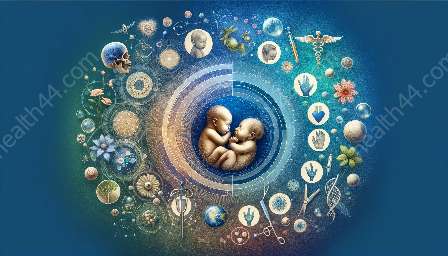Human growth and development is a dynamic and complex process that involves the progressive and continuous physical, cognitive, and socioemotional changes from infancy through adulthood. Monitoring developmental milestones is crucial in assessing and supporting individuals' growth and well-being, especially in nursing practice. This comprehensive guide delves into the significance of developmental milestones and assessment in the context of human growth and development, shedding light on the key principles, stages, and assessment methods.
The Significance of Developmental Milestones
Developmental milestones are the key behavioral, cognitive, and physical achievements that individuals reach at specific ages. These milestones provide vital insights into children's development, allowing healthcare professionals, including nurses, to identify potential developmental delays and provide timely interventions. Understanding developmental milestones also helps parents and caregivers to support children's growth and thriving.
Holistic Approach in Assessing Developmental Milestones
Nursing professionals approach the assessment of developmental milestones from a holistic perspective, recognizing the interconnectedness of physical, cognitive, and socioemotional domains. By adopting a holistic view, nurses can evaluate an individual's development comprehensively, considering not only physiological growth but also cognitive abilities, language skills, and social interactions. This holistic approach enables nurses to address developmental concerns in a more integrated and effective manner, prioritizing the overall well-being of their patients.
The Role of Nurses in Monitoring Developmental Milestones
Nurses play a pivotal role in monitoring and assessing developmental milestones across diverse age groups, from newborns to adolescents. Through routine screenings, observations, and interactions with patients and their families, nurses can detect any deviations from expected developmental patterns and collaborate with interdisciplinary teams to formulate tailored care plans. Moreover, nurses offer guidance and education to parents and caregivers on promoting healthy development and addressing developmental challenges, fostering a nurturing and supportive environment for children.
Assessment Methods for Developmental Milestones
The assessment of developmental milestones involves using various methods and tools to comprehensively evaluate an individual's progress. Some common assessment techniques include structured observation, standardized developmental screening tools, and parent or caregiver reports. Nurses are adept at employing these methods to gather pertinent information and identify potential developmental concerns. Additionally, interdisciplinary collaboration with child development specialists, psychologists, and educators enhances the accuracy and effectiveness of developmental assessments, ensuring a multidimensional understanding of individuals' growth and development.
Developmental Milestones and Cultural Diversity
Recognizing the influence of cultural diversity on developmental milestones is essential in nursing practice. Cultural norms, practices, and beliefs significantly impact individuals' developmental trajectories, underscoring the need for culturally sensitive assessments and interventions. Nurses are committed to recognizing and respecting cultural differences, incorporating culturally competent care approaches to support children's development within various cultural contexts. By embracing cultural diversity, nurses contribute to promoting inclusive and equitable developmental assessments, ensuring that every child receives personalized and culturally relevant support.
Advancements in Developmental Milestones Research
The field of developmental milestones and assessment continues to evolve, driven by ongoing research and innovative approaches. Nurse researchers actively contribute to advancing the understanding of developmental trajectories and refining assessment tools and practices. By engaging in evidence-based practice, nurses can stay abreast of the latest developments in developmental milestones research, integrating cutting-edge knowledge into their clinical assessments and interventions, thereby enhancing the quality of care and outcomes for individuals across the lifespan.
Conclusion
Developmental milestones and assessment are integral components of nursing practice within the broader framework of human growth and development. By emphasizing the significance of developmental milestones, adopting a holistic approach to assessment, and recognizing cultural diversity, nurses are well-equipped to monitor, assess, and support individuals' developmental journeys. Embracing the multidimensional nature of human development, nurses play a vital role in promoting optimal development and well-being, contributing to the holistic care of individuals and communities.


